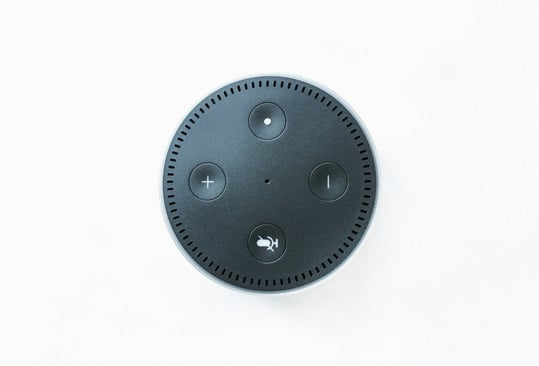Voice technology is on the rise as consumers have gravitated towards a more convenient way of shopping. Voice search is typically used on devices such as smartphones, laptops, tablets, and special devices that allow users to talk into the speaker to input a search query. In fact, Google has increased its word recognition accuracy rate from below 80 to over 90%.
It's safe to say that with the advancements of technology, consumers are looking upward when it comes to their shopping options, and consumers can expect a stronger customer advantage by creating a better customer experience. Here’s what you need to know about voice to prepare for this expected shift in modern commerce.
1. Put Consumer Experience First
Devices such as Alexa and Google Home has become a part of consumers' normal routine. As people continue to embrace voice technology at home, it's going to be expected that businesses can provide the same convenience to produce a better customer experience. Voice searches are faster than text searches, and in a world where consumers are expecting instant gratification, voice searches bring them one step closer to that reality. By implementing a voice search strategy, you can expect to see better engagement with consumers who are early adopters and crave convenience.
2. Include Voice Search in Your SEO Strategy
SEO has always been important to businesses globally, but specifically, digital commerce businesses rely heavily on SEO to drive traffic to their website. Voice search is impacting SEO because it is changing the way individuals interact with searches. This is because voice searches tend to be longer as compared to textual searches because voice searches are generally more conversational. Instead of consumers saying, "Best places to dine", the conversation shifts to, "Where is the best place to have dinner tonight?"
This means that businesses are incorporating additional keywords into their content to accommodate voice searches. One of the greatest benefits of voice searches for SEO is that individuals tend to ask questions, which allows businesses to be more precise and create relevant question keywords that can increase their chances of being more searchable. Voice searches tend to be more flexible so you may need a wider range of phrases to connect with your customer.
3. Seize This Competitive Advantage
Voice searches are still relatively new in the technology world but it is spiraling upward with no sign of stopping. However, that are still many digital commerce businesses who haven't adopted voice searches to accommodate this rapid change in technology. This gives your digital commerce business the opportunity to be one of the few businesses who is implementing voice search to meet customers' needs and improve their buying experience.
While voice search is still relatively new, it has already changed the way we conduct business. With that said, digital commerce site experts who focus on developing a solid voice search strategy can expect to see exponential growth moving forward.
Written by: Cara Wood
Cara Wood (she/her) is a writer and former director of brand journalism at Salsify, where she specialized in creating content to help brands excel in ecommerce. Her work has helped organizations enhance their digital shelf and product experience management strategies.
Recent Posts
Why Advent Calendar Marketing Is One of the Hottest Holiday Shopping Trends
How To Build a Successful Zero-Party Data Strategy for Ecommerce Personalization
How Social Commerce Is Shaping the Shopping Habits of Every Generation — From Gen Z to Baby Boomers
Subscribe to the Below the Fold Newsletter
Standing out on the digital shelf starts with access to the latest industry content. Subscribe to Below the Fold, our monthly content newsletter, and join other commerce leaders.




.svg)